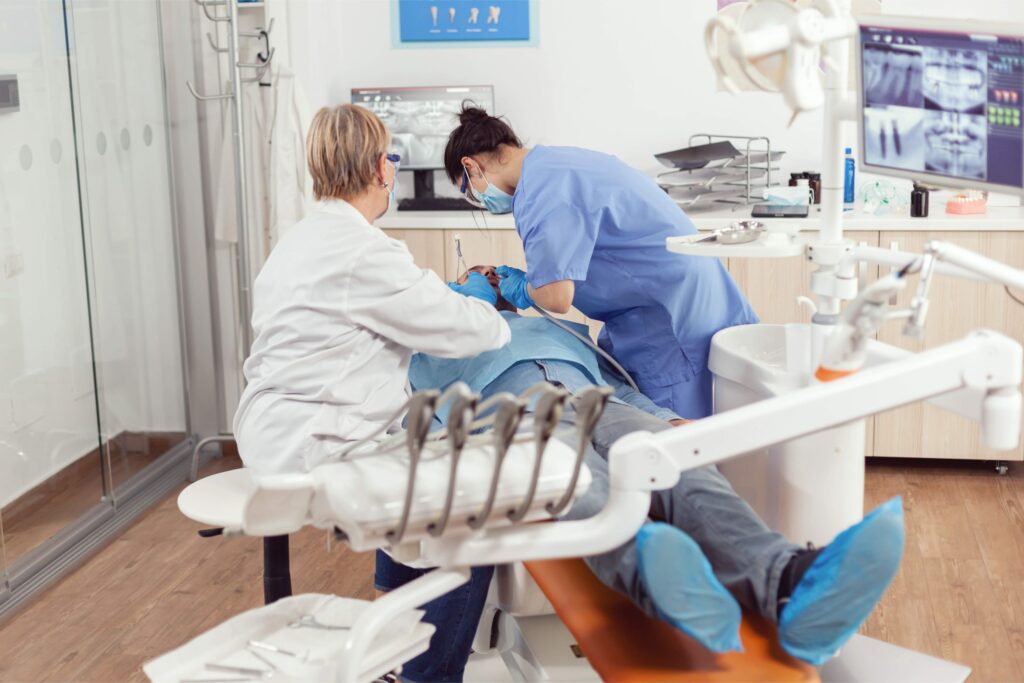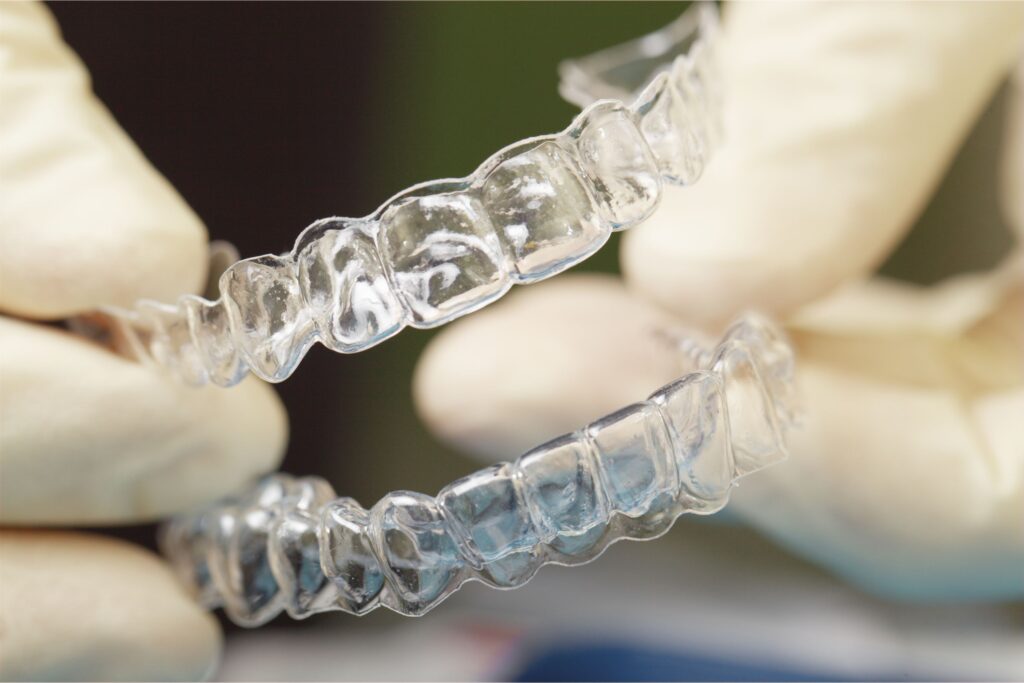Oral health and hygiene is about much more than just brushing and flossing regularly. Your oral hygiene can affect the well being of the entire body and brain. Dentistry is evolving at a rapid pace as professionals are beginning to understand the wide range of affects that positive oral hygiene has on the whole body.
Producing positive oral health is more than just ensuring that your teeth are white and your smile symmetrical. The digestive system begins at the entrance to your mouth, and what happens in the mouth can affect how food and beverages are processed and absorbed in the body. Furthermore, there is a strong correlative link between a healthy mouth and a healthy brain. So, why are some dentists introducing saunas into their clinical practices? It is not because saunas can replace the need to brush your teeth regularly, floss, and get twice yearly cleanings, nor is it because they prevent cavities, but rather, saunas can promote the health of the entire body’s systems including oral health.
In case your dentist does not have an in house sauna, and you would like to consider using a sauna to improve oral health, find out why sauna bathing could possibly affect your dental health and how to use your sauna for this purpose.
Heal Bacterial Bloom in the Mouth and Avoid Tooth Decay
Regular sauna bathing may improve the function of both the innate and adaptive immune systems. By immersing the body in a heated state, a cascade of biochemical reactions occur that directly impact the immune system. We all come into contact with a multitude of bacteria externally and within the oral cavity. While it is possible to keep the teeth and gums clean through brushing, fluoride treatments, and other preventative measures, if your immunity is compromised for any reason there is a much higher chance for bacteria to spread and seep into the dentine layers of the tooth.

Streptococcus accounts for 80% of the community of microorganisms living in your mouth, and if there is a lack of proper oral hygiene maintained, or if your immunity is lowered for any reason at all, these microorganisms can create a colony in your mouth that causes tooth decay. (1)
Extensive research has demonstrated how regular use of a sauna may dramatically improve immunity, so while a sauna cannot brush your teeth for you, it is possible to induce a myriad of positive effects to the function of your immune system. A healthy immune system can help to combat bacterial infection in the mouth and preserve the integrity of your dental structure, as well as the overall health of the oral cavity.
A journal published by Medical Life Sciences, authored by Dr. Akshima Sahi, BDS and reviewed by Emily Henderson, B. Sc, describes the importance of addressing bacteria in the mouth quickly so that it does not spread into other parts of the body and cause damage to internal organs:
“Understanding these oral floras can help in assessing various dental diseases like gingivitis and periodontitis which account for the most frequent bacterial infections in the human body.
More importantly, these microorganisms can even result in serious systemic infections like bacterial endocarditis, preterm labor, pneumonia, and cardiovascular diseases…
Studies have highlighted that if dental hygiene is not maintained these Gram-negative bacteria can infect other organs. For example, bacterial endocarditis is one such condition that can affect the human heart. ” (1)
By getting into a sauna for 20 minutes, 3-4 times a week it is possible to produce more heat shock proteins (HSPs) that directly correlate with improved T-cell production in the bone marrow. This increase in HSPs can then be transported into the bloodstream to the affected area of infection in the mouth. So, as odd as it may sound, regular sauna use has the ability to improve immunity to such an extent that it may be possible to keep the oral cavity healthy and protect the rest of the body from more serious disease and illness.
Nocturnal Teeth Grinding: Relax Your Nervous System
Teeth grinding (also known as Bruxism) can have devastating effects on a person’s dental construct, and it is also a very common affliction that affects many people. The primary causes for this disorder are stress and anxiety related. Until the teeth grinding actually cessates, it is helpful for individuals to wear a mouthguard to protect the teeth. Because teeth grinding is born out of stress, the upside is that stress management techniques may help to prevent or stop teeth grinding.

Some drugs, including prescriptions such as SSRIs (serotonin uptake mediation), as well as non-prescription drugs like cocaine, may also cause teeth grinding in individuals who would otherwise not be teeth grinders. This is closely related to the release of adrenaline and other stress hormones into the body’s systems, either elicited through the intake of certain substances, or simply from the body’s natural stress response. Either way there is a direct link between a flooding of stress hormones into the body and nocturnal teeth grinding.
Anyone looking to overcome teeth grinding will want to find ways to manage stress. There are a plethora of modalities available that can help reduce stress, for example, exercise, mediation, yoga, non-sleep deep rest (NSDR), massage, and various forms of thermal therapy, including sauna bathing.
What makes sauna so unique as a means to relaxation and as a tool to work with the autonomic nervous system, is that the individual does not have to ‘do’ anything. Meaning by virtue of sitting in a heated cabin structure, the body will naturally react to the heat stress through perspiration, an elevated heart rate, and ultimately into states of relaxation. It can be very difficult for some folks to find states of relaxation through meditation, or yoga. Furthermore, massage relies on another individual to get you into states of relaxation, and while all of these modalities are excellent for overall health, if you are someone who suffers from intense amounts of stress for any reason, or anxiety, sometimes sitting still in meditation can make things worse at first.
Sauna bathing is a robust way of moving the body from states of stress response (that flood the body with a plethora of hormones that can lead to teeth grinding), into states of relaxation without having to ‘do anything’. So for the hyper-stressed individual, or for someone living with anxiety, a sauna can be a way to transfer the autonomic nervous system out of stress response and into states of relaxation where, ideally, nocturnal teeth grinding can be minimized, or perhaps stopped altogether.
Improved Circulation & Reduced Inflammation: Enhance Your Gum Health
Sauna bathing is an excellent way to improve circulation and reduce inflammation. Most folks will immediately think of inflammation in the joints created by conditions such as arthritis or sports injuries. Interestingly, by uptaking circulation through regular sauna use, it is also possible to reduce inflammation in the gums.
By improving circulation to all portions of the body – nutrients, white blood cells, and proteins necessary to keep the body healthy, (and gums are no exception), are delivered more readily.
A journal published by the National Library of Medicine finds that a variety of cytokines, proteins, as well as other biomarkers released after a sauna session, has a dramatic effect on inflammation reduction:
“…these findings provide strong implications for the role of sauna bathing in mitigating inflammation in HSO (Health Standards Organization).” (5)
Regular use of a sauna may improve oral health by increasing blood circulation in response to heat stress, and therefore reduce inflammation of the gums while delivering important nutrients through the bloodstream to the mouth.
Detoxification from Metal Fillings
The world of dental fillings is changing rapidly with places such as Europe prohibiting the use of metal fillings altogether. Many people have long lived with fillings made of various types of metals, some of which, if agitated, can pollute the body. If you are someone who has had, or still has, metal fillings in your mouth, then you will be happy to know that saunas may provide an excellent means to detoxify from heavy metals in the body.

By elevating the internal temperature of the body it is possible to elicit perspiration of extreme levels. In so doing, many toxins in the body, including heavy metals, are escorted out along with the fluid of sweat. For every 20 minutes spent in a sauna, the average person will lose 1 pint of fluid. If you decide to use sauna for the explicit reason of detoxification, then you want to be sure to be vigilant with hydration before, during, and after each sauna session.
Whether you have been able to have your metal fillings replaced with a more healthful material or not, you will still actively benefit from detoxification of the body through heavy sweating during a sauna session.
In terms of actual sauna use, up to a point, for most health conditions the National Institute of Health recommends the more sauna sessions you can do in a week (up to 7), the better the outcome will be. The exception to this rule of thumb is if you are actively trying to improve Human Growth Hormone with sauna use, in which case the protocol is quite different). Further, if you are experiencing dehydration, or any other adverse effects from sauna use then you should limit the number of sessions, duration, as well as temperature.
It is important to build up your stamina for sauna use, just as you would with exercise. So, be sure to start off at a low temperature, with lots of time between sessions to give your body time to adjust.
Here is the table published by the National Institute of Health on how often and for how long most individuals should use a sauna:
Sauna Use Table Graph
(5)
This means that as long as you are not pregnant, are of an adult age, and not suffering from any conditions that could be negatively affected by sauna use, the more often you can get into a sauna the better your health will be, and this includes your oral health!
Saunas are not a Substitute for Dental Care, However, Regular Sauna use can Drastically Improve your Oral Hygiene if Used Often
Just because you have a sauna in your home, or regular access to a sauna, does not mean that you can put your toothbrush down for good. Even if you are able to sauna regularly, you still need to brush your teeth at least twice a day, floss regularly, and visit your dentist for cleanings and checkups.
By using a sauna habitually (at least 3-7 times per week), you may be able to mitigate tooth decaying bacterial bloom in the mouth by enhancing overall immunity, reduce or limit nocturnal teeth grinding, induce positive circulation to reduce gum inflammation, and possibility detoxify the body of heavy metals possibly caused from fillings.
Be sure to keep up with your habitual oral hygiene routine, and consider incorporating regular sauna bathing into your lifestyle for ultimate oral and dental health.
Contraindications:
Check with your dentist to make sure that your fillings will not be agitated or damaged by the heat of a sauna. Furthermore, saunas are not suitable for all persons at all times in their life. Always consult with your dentist or primary care physician if you are unsure if you should be using a sauna.
Sources Cited:
- https://www.news-medical.net/health/What-Microorganisms-Naturally-Live-in-the-Mouth.aspx
- https://www.mayoclinic.org/diseases-conditions/cavities/symptoms-causes/syc-20352892
- https://columbiadentallv.com/the-link-between-sauna-therapy-and-oral-health-what-science-says/
- https://www.nhs.uk/conditions/teeth-grinding/
- https://www.ncbi.nlm.nih.gov/pmc/articles/PMC7908414/


